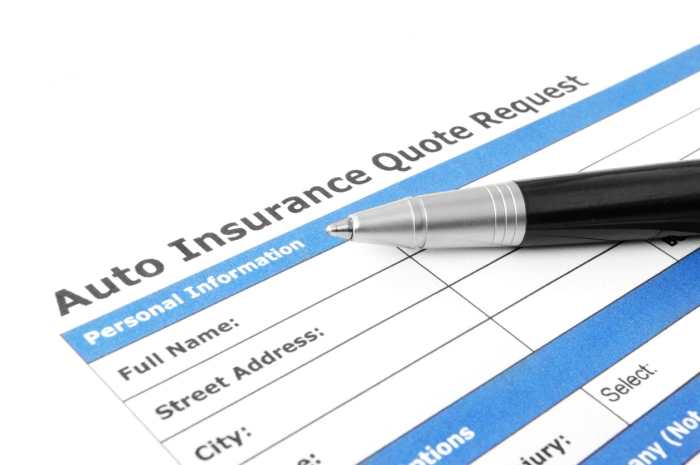Getting car insurance quotes is crucial for finding the best rates. This process can seem daunting, but understanding the factors influencing premiums and comparing various options can save you money. We’ll explore the key steps and common pitfalls to help you navigate the insurance landscape with confidence.
Different insurers have different criteria for calculating premiums. Factors like your driving record, vehicle type, and location all play a role. Understanding these elements is key to getting the most competitive quote.
Finding the right car insurance can feel like navigating a maze. With numerous providers and policies, understanding how to get accurate and competitive quotes is crucial. This guide breaks down the process, offering clear explanations and actionable steps to secure the best possible coverage for your needs.
Understanding the Importance of Car Insurance Quotes
Car insurance isn’t just a legal requirement; it’s a financial safeguard. Getting multiple quotes allows you to compare premiums, coverage options, and deductibles from various providers. This comparison empowers you to choose a policy that balances affordability with adequate protection. Factors like your driving record, vehicle type, and location significantly impact premiums, making a comparison essential for finding a tailored solution.
Factors Influencing Car Insurance Premiums, Getting car insurance quotes
Several key factors influence the cost of your car insurance. These include:

Source: oneilinsurance.com
- Driving Record: Accidents, speeding tickets, and violations directly affect your premium. A clean record generally translates to lower premiums.
- Vehicle Type: The make, model, and value of your car play a role. High-performance or expensive vehicles often come with higher premiums.
- Location: Your city and state can impact your premiums. High-risk areas or those with higher accident rates usually have higher premiums.
- Age and Gender: Your age and gender can affect your insurance rate. Younger drivers and male drivers often face higher premiums, though this is subject to change and may not always be the case.
- Coverage Options: The level of coverage you select influences the premium. Comprehensive coverage, for example, often results in a higher premium than liability-only coverage.
- Credit Score (In some areas): While not universally used, some insurers consider your credit history when determining your premium. A good credit score can potentially lead to a lower premium.
How to Get Car Insurance Quotes Effectively
Getting accurate car insurance quotes is a straightforward process, but efficiency is key. Follow these steps:
1. Gather Your Information
Before you start, collect all necessary details about your vehicle, driving history, and personal information. This includes your driver’s license number, vehicle identification number (VIN), any prior insurance policies, and your driving record. Access to this data will streamline the process.
2. Use Online Comparison Tools
Online comparison websites are invaluable resources. These platforms aggregate quotes from various insurers, allowing you to quickly compare different options. This is often the most efficient way to get a broad overview of available rates and coverage.
3. Contact Insurers Directly
While comparison tools are useful, contacting insurers directly can be beneficial. This approach lets you ask specific questions and potentially negotiate terms. Some insurers offer tailored packages that may not appear on comparison sites.
4. Understand Different Types of Coverage
Familiarize yourself with the various types of car insurance coverage available. This includes liability, collision, comprehensive, and uninsured/underinsured motorist coverage. Choosing the right coverage protects you financially and legally in various scenarios.

Source: interogator.com
Tips for Saving Money on Car Insurance
Several strategies can help you reduce your car insurance premiums:
- Maintain a Good Driving Record: Avoid traffic violations and accidents.
- Increase Your Deductible: Higher deductibles often lead to lower premiums.
- Consider Discounts: Look for discounts offered by insurers for good driving records, anti-theft devices, or defensive driving courses.
- Review Your Policy Regularly: Ensure your policy still aligns with your needs and adjust accordingly.
Frequently Asked Questions (FAQs)
- Q: How often should I get car insurance quotes?
A: It’s recommended to get quotes at least once a year, or whenever you experience a significant change in your driving record, vehicle, or location.
- Q: Are online comparison tools accurate?
A: Yes, reputable online tools are generally accurate, but it’s always best to verify details directly with insurers.
- Q: What is the best car insurance company?
A: The “best” company varies based on individual needs and preferences. Comparing quotes is the key to finding the right fit.
- Q: How long does it take to get car insurance quotes?
A: The time required depends on the method used. Online tools often provide instant quotes, while direct contact may take a few days.
Call to Action
Ready to find the perfect car insurance policy for you? Get your personalized quotes now and secure peace of mind on the road.
Sources: (Insert links to reputable car insurance comparison websites and/or regulatory bodies)
In conclusion, securing the best car insurance involves comparing quotes from multiple providers, understanding the factors influencing your premium, and carefully evaluating your needs. By following these steps, you can find the most suitable policy to protect your vehicle and ensure peace of mind.
Questions and Answers: Getting Car Insurance Quotes
How long does it typically take to get car insurance quotes?
The time it takes to receive quotes varies depending on the insurer and the completeness of your information. Typically, it ranges from a few minutes to a couple of hours.
Can I compare quotes from different insurers online?
Absolutely! Many websites specialize in providing online car insurance quotes, allowing you to compare rates from various insurers in a convenient and efficient manner.
What if my driving record isn’t perfect?
Insurers consider your driving record when calculating your premium. A less-than-perfect record might result in higher premiums, but there are options like discounts for defensive driving courses that can help.
